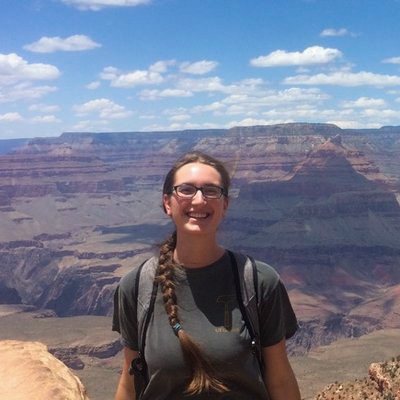SIS Student Rose Borden Selected as ESIP Community Fellow
News

SIS Student Rose Borden Selected as ESIP Community Fellow
November 2, 2018
By SIS Staff
SIS student Rose Borden has been selected as an Earth Science Information Partners Community Fellow, which is a national-level fellow that names five to six students a year to its program. Earth Science Information Partners (ESIP) is an open, networked community that brings together science, data and information technology practitioners, according to its website.
“The ESIP Community Fellowship is a national honor that recognizes a student’s ability to contribute to the earth science community and their commitment to actively participate in assuring that scientists and others have reliable and accessible information into the future,” said Suzie Allard, SIS Chancellor’s Professor. It is very competitive and counts doctoral students and post-doctoral researchers among its applicants. “Rose’s achievement reflects her scientific and growing information skills as well as her incredible enthusiasm.”
The fellows are graduate students interested in bridging the gap between informatics and earth science, and Borden said they help by taking notes on monthly telecons conducted by different working groups within the organization, as well as helping to plan ESIP’s semi-annual meetings in summer and winter.
“I’m really excited to meet more people who are doing earth science and information science and see all the different ways we can use that,” Borden said of the fellowship. Borden resides in Knoxville and recently wrapped up her master’s degree in geology from the University of Tennessee, Knoxville. She said she decided to get her master’s in information sciences after struggling to find jobs in the geology field.
“I’ve kind of always been interested in being a librarian just in the back of my mind and I ended up going into geology in undergrad and loved it and wanted to get my master’s in geology,” she said.
Once Borden started looking into possible career fields that would combine geology with information sciences, she was pleased with the possibilities. She discovered that her degree combo would work well in positions at the United States Geological Survey, NASA and a variety of other organizations.
“I would definitely like to find something where I can combine geology and library information science. I think the two paths I’ve been thinking about are either in an academic library for science or geology, or going into working for NASA or USGS in one of their libraries or data management positions,” she said.